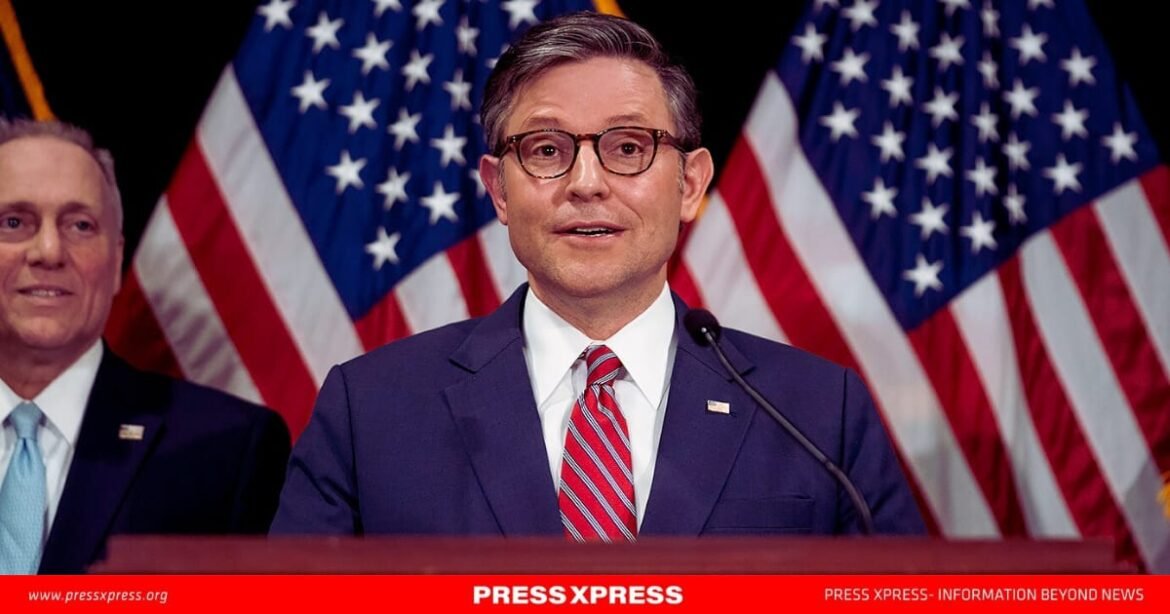In a contentious and narrow vote, Speaker Mike Johnson (R-La.) retained his leadership in the U.S. House of Representatives, but his path forward promises to be anything but smooth. Faced with deep divisions within his party, a fragile majority, and an ambitious legislative agenda driven by President-elect Donald Trump, Johnson finds himself at the center of one of the most challenging periods in modern U.S. politics.
A Rocky Start Reflecting Deeper Divisions
The Friday vote underscored the fragile unity within the Republican Party. Three GOP lawmakers initially opposed Johnson, with two reversing course at the eleventh hour to secure his position. Their resistance highlights broader dissatisfaction within the party, especially regarding fiscal policy and legislative processes.
Key figures, such as Representative Chip Roy (R-Texas), voiced strong concerns about Johnson’s leadership approach. Roy warned that any repeat of the perceived mismanagement in December’s spending negotiations would have serious consequences. “If anything happens like what occurred before Christmas, there will be consequences,” Roy said, referring to the short-term spending bill that sparked internal frustration.
Bridging a Fractured Party
In response to these criticisms, Johnson pledged reforms aimed at fostering collaboration and transparency. Promising a “member-driven, bottom-up” legislative approach, Johnson sought to reassure his colleagues. “We must succeed. We have no margin for error,” he emphasized during post-vote remarks.
Johnson’s immediate challenge is crafting a comprehensive bill that includes Trump’s key priorities, such as extending his tax cuts and addressing border security. To bypass potential Democratic opposition in the Senate, Republicans aim to leverage the reconciliation process, which allows for party-line passage. However, uniting the GOP around this complex package will test Johnson’s leadership and negotiating skills.
Thin Majority, High Stakes
With a narrow 219-215 majority in the House, Johnson’s margin for error is virtually nonexistent. The situation will grow even more precarious as several Republican members transition to roles in the Trump administration, further tightening the numbers. Senate Majority Leader John Thune (R-S.D.) described Johnson’s predicament as “a really, really tough job,” pointing to the diverse and sometimes conflicting priorities within the GOP ranks.
Adding to the complexity is Trump’s demand for a $1.5 trillion increase in the U.S. debt ceiling, coupled with $2.5 trillion in spending cuts. While Republicans reached a tentative agreement on these figures, identifying and enacting the necessary cuts has already sparked discord. Representative Ralph Norman (R-S.C.) warned against superficial compromises, stating that “every dollar spent has an advocate, and fights will ensue.”
Hardline Conservatives Apply Pressure
Johnson’s leadership also faces pressure from hardline conservatives within the party. A group of 11 Republicans, including members of the influential House Freedom Caucus, issued a public letter outlining demands for fiscal responsibility, legislative transparency, and adherence to procedural rules. The letter signaled that the group’s support for Johnson was conditional and emphasized their willingness to use the “motion to vacate” to challenge his leadership if expectations are not met.
Representative Andy Ogles (R-Tenn.), one of the letter’s signatories, described the motion to vacate as “an important accountability measure,” warning that Johnson’s position depends on his ability to deliver results.
The Road Ahead
The GOP’s internal divisions will come to the forefront during an all-day planning session aimed at finalizing the Trump agenda bill. This legislation, likely to include significant spending cuts alongside Trump’s policy priorities, represents a pivotal moment for Johnson’s leadership and the party’s cohesion.
As Speaker, Johnson must navigate a delicate balance—appeasing hardliners, maintaining party unity, and advancing a legislative agenda that will shape Trump’s presidency. His success or failure will resonate far beyond Washington, offering a window into the challenges of governing in an era of polarized politics and narrow majorities.
For Johnson, the stakes are enormous. With every vote, his Speakership and the trajectory of Trump’s agenda hang in the balance, as the international community watches closely to gauge how these domestic struggles might influence U.S. policy on the global stage.


